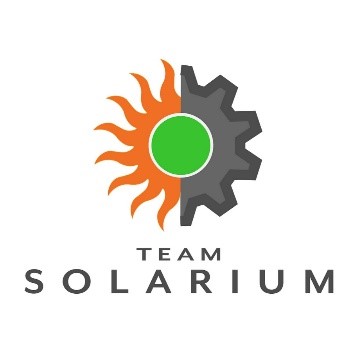
We are a team of dedicated engineering students working towards a greener tomorrow. We build automobiles that do not require burning of fossil fuels for their propulsion, but rather a very abundantly available, renewable type of energy source, THE SUN.
With the help of our Faculty Coordinator,
Dr. Jaya Goyal
,
Team Solarium was founded in 2016. Since then, we have been we have
been working to improve our vehicle’s overall performance by incorporating bleeding-edge
technology into our design.
We believe that renewable energy resources have the potential to empower the world and at the heart of this belief, lies our team’s logo: The power of the Sun combined with an engineering mindset to envision a greener future.

Dr. Jaya Goyal
Faculty Coordinator
About us
At Team Solarium, we strongly believe that Solar Energy is the next step in building a sustainable future. By taking on the challenge of creating a light and efficient solar-electric vehicle, we want to showcase its possibilities. It is a wonderful opportunity for us students to attain hands-on experience. We actively promote clean energy awareness and education, essential pursuits in striving towards a cleaner future.
Looking ahead, Team Solarium is gearing up for one of its most ambitious ventures yet — the SASOL Solar Challenge 2026 in South Africa. This international solar endurance event spans over 2,500 km, bringing together the most innovative solar electric vehicles from around the world. As the team begins preparations, the focus is on developing a new-generation solar car that prioritizes efficiency, lightweight design, intelligent energy management, and real-time data optimization. With a proven track record in national competitions, Team Solarium aims to represent India on the global stage and push the boundaries of sustainable mobility through cutting-edge engineering and relentless teamwork.
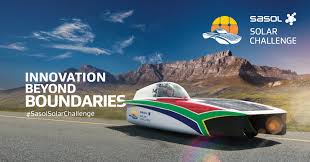
Invictus 6.0 Season 2024-25
In 2025, Team Solarium returned to ESVC 3000, held in Noida, for another exciting chapter in India’s premier solar car rally. The event, conducted on the high-speed Yamuna Expressway, covered nearly 100 km, testing the vehicles' real-world efficiency, reliability, and design
For this edition, Team Solarium introduced a significant technological upgrade — Real-Time Data Telemetry — enabling advanced vehicle monitoring and performance analysis throughout the rally. This innovation proved crucial in optimizing race strategy and ensuring peak performance in all conditions.
Our efforts were rewarded with exceptional results. For the second consecutive year, Team Solarium was crowned Overall Champion, affirming our consistent excellence and leadership in the solar vehicle domain.
Achievements:
Invictus 5.0 Season 2023-24
In 2023, Team Solarium took on the challenges of NSVC (National Solar Vehicle Championship), a prestigious circuit-based solar race hosted at VNIT Nagpur. The event featured a diverse range of tests for solar electric vehicles, including solar endurance, a 2-hour endurance race, cross pad, and off-roading—pushing teams to prove their vehicles' versatility, efficiency, and resilience.
Rising to the occasion with determination and technical finesse, Team Solarium delivered a stellar performance across every segment of the event. The combination of strategic driving, smart energy management, and robust design culminated in the team securing the highest honor of the competition.
Achievements:
Invictus 4.0 Season 2022-23
In 2023, Team Solarium proudly participated in ESVC 3000, India’s first-ever solar car rally, held on the high-speed Yamuna Expressway. Spanning nearly 100 km, this prestigious event tested the endurance, efficiency, and innovation of solar electric vehicles under real-world driving conditions.
To meet this challenge, Team Solarium focused on enhancing the vehicle’s aerodynamic performance. The team achieved a remarkable drag coefficient of 0.125 and introduced a closed cockpit design, significantly improving both energy efficiency and driver safety throughout the rally.
Our performance was a result of months of rigorous development, creative problem-solving, and cohesive teamwork. Team Solarium stood out by securing top positions across a range of critical categories.
Achievements:
INVICTUS 3.2 Season 2021-22
With the ongoing pandemic all the dynamic events were cancelled. The team decided to counter this challenge by participating in another virtual competition whilst still targeting the dynamic event which was going to be held later that year.
Invictus 3.2 was inspired by the previous year's design. It was made for Saur Urja Vehicle Championship (SUVC) virtual season 5 held from Oct 2021 to March 2022. SUVC is a national level solar electric vehicle competition organized by REFRANGIBLE SOCIETY OF TECHNOPHILE ENGINEERS (RSTE), that challenges engineering students to work on electric vehicles with utilization of sustainable energy.
Invictus 3.2 outperformed all the rival teams in the virtual event by showcasing the innovative design and amazing display of the features Invictus 3.2 holds.
We grabbed various awards in the event:

Achievements:
With an almost clean sweep, the team was able to achieve the no. 1 position in the country and become national champions for the very first time!
INVICTUS 3.1 Season 2019-20
As upgradation is necessary to survive as the innovation always continues and we decided not to be satisfied with our current innovations. This is why we upgraded them as we know stagnate, we fail and by flowing we win.
Our latest creation, the Invictus 3.1 is the upgraded version of Invictus 3.0 and the most efficient and best performing out of all vehicles to date. We have incorporated all the previous features and also, newly introduced innovations like self-designed and manufactured carbon fibre battery box, IoT and Cloud Computing, and automatic gear shifting. We also managed to make our vehicle autonomous till stage 3 of vehicle autonomy.


Unfortunately, due to the Corona Virus outbreak and the lockdown following soon in India, the ESVC 2020 was held virtually. Despite this set-back, we grabbed the following awards and stood 2nd in the entire country
Achievements:
INVICTUS 3.0 Season 2018-19
After the success of our first ESVC competition we designed a new vehicle with new innovations as everyone knows innovation is the main thing for us engineers which would drive our engineering endeavours.
In Invictus 3.0 we added IOT for vehicle monitoring in real-time, lightweight brake caliper that is 3 times lesser in weight than industry standards. We also implemented automatic gear shifting which has no manual transmission. Cloud computing was implemented for data analysis of vehicle for making it more efficient and validating our design.
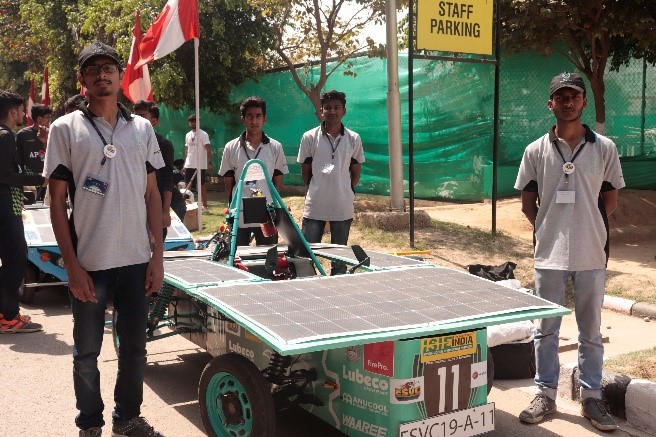

The Invictus 3.0 was built to compete in ESVC for the second time. The vehicle held a plethora of innovative features and components that helped win many awards in the competition
Achievements:
The Passenger Vehicle
As we as a team in the solar electric vehicle domain will not be limited to a car so we decided to make a passenger vehicle. We as a team need to give some part of our innovation and help to make technology environment friendly hence, we took this initiative as a responsibility towards the environment.
Along with the Invictus 3.0, we also designed and manufactured an ergonomically sound passenger vehicle with real-time data telemetry. Dassault Systemes had sponsored the entire project as they realized our potential and commitment towards spreading awareness about clean energy and conservation of the environment
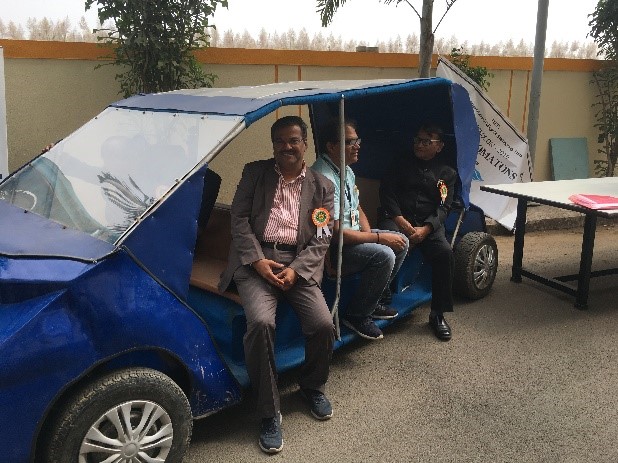

The passenger vehicle could be used as an in-campus utility for our college. It comprised of several features that Dassault Systemes appreciated:
This was also done to increase awareness and promote green energy so that we can inspire the future generation.
Other Events
Apart from solar racing event, Team Solarium also takes part other extracurricular activities in order to get technical and industrial exposure. Some of these events are:
Engineering Expo is a platform where we actively take part in. It allows us to gain further contacts from the industry and learn about technical innovations in the industry. It is the leading trade fare for automotive engineers focusing on the car body processing chain

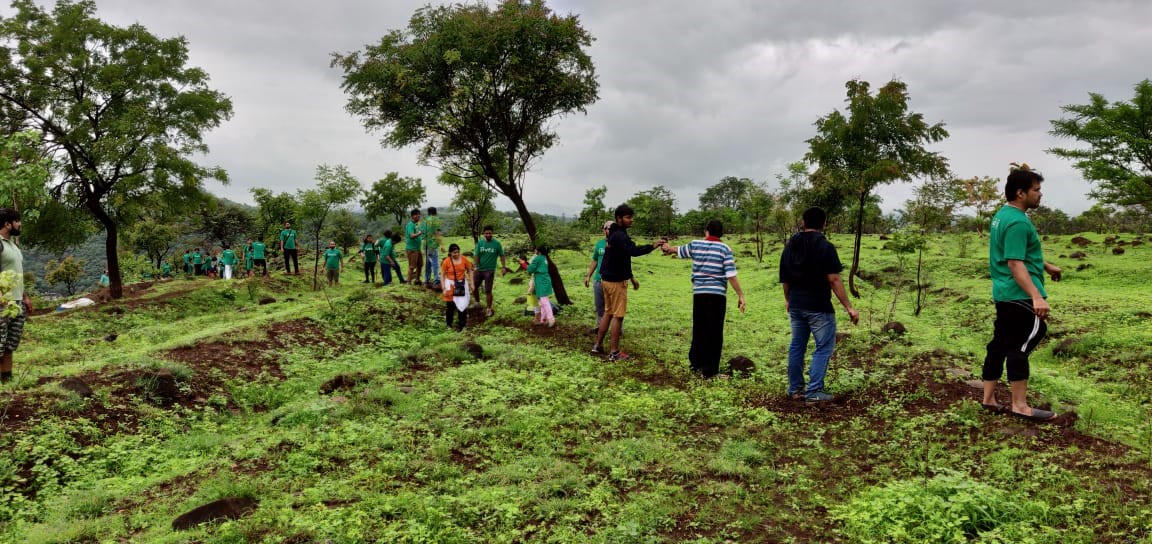
We also have a social responsibility towards the nature. Hence, we conduct a tree plantation drive to plant trees around Pune. These extracurricular activities provide a setting to become involved and to interact with team members, thus leading to increased learning and enhanced development.
We have been invited to event like ICERP (International conference & exhibition on reinforced plastics) in order to showcase our vehicle. It focuses on the up-gradation of composites technology in India to reach a global level in terms of product quality.
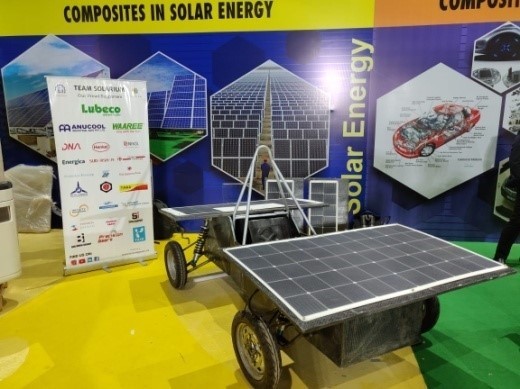
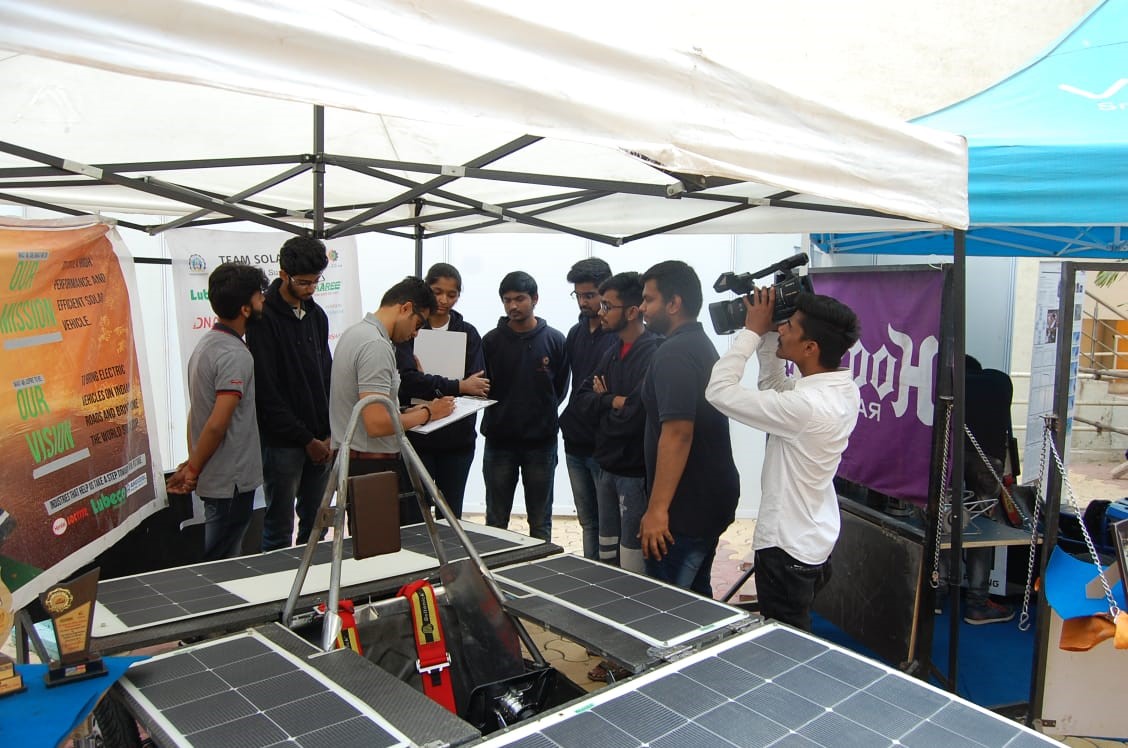
KPIT Sparkle has been a huge stage where our team members interact with industrial experts and gain more knowledge through conversations with them. They provide us valuable feedback and help us develop our design and personal conversational skills.
INVICTUS 2.0 Season 2017-18
After the team’s success in NSVC we decided to participate and make our mark in an ASIA Level Event, ESVC. It was a giant leap for us as we were in a continent level championship. And the success story continued.
The second vehicle, Invictus v2.0, designed to do the same things, but in a much more efficient and reliable way. It is being designed to compete in the Electric Solar Vehicle Challenge 2017-18. It was a completely new challenge with new obstacles and innovation was at its peak during the season.
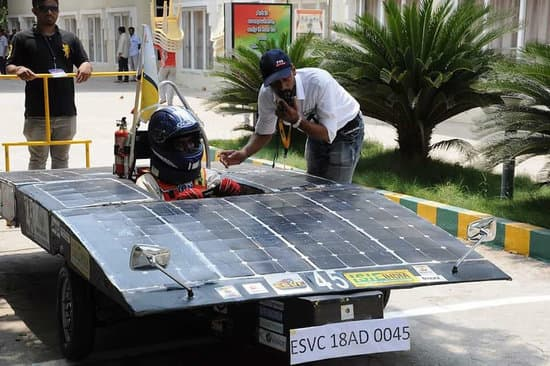

The Invictus 2.0 was our first vehicle that was a part of ESVC (Electric Solar Vehicle Championship). It was a unique carbon fibre monocoque chassis, making Team Solarium the second team in India to do so along with several other features. These features helped us bag the following awards
Achievements:
INVICTUS 1.0 Season 2016-17
The Invictus 1.0 was the first vehicle made by Team Solarium. As everyone knows entering the new domain of industry solar electric cars is challenging as everyone faces challenges Team solarium got success in its first attempt. We came into existence, as a team in the month of September 2016, and went on to design a solar-electric vehicle within 50 days, built the working prototype in 90 days and had a successful competition in March 2017
Invictus 1.0 was designed and manufactured for a national level event named National Solar Vehicle Challenge (NSVC). It outperformed all the other vehicles. It was a competition, race-ready vehicle capable of carrying the driver that runs on the power from the sun or the charge stored in its batteries. It is capable of a top speed of 45 kmph by using just a 1.25kW motor. It was designed and built to compete in the National Solar Vehicle Challenge (NSVC) 2016-17.
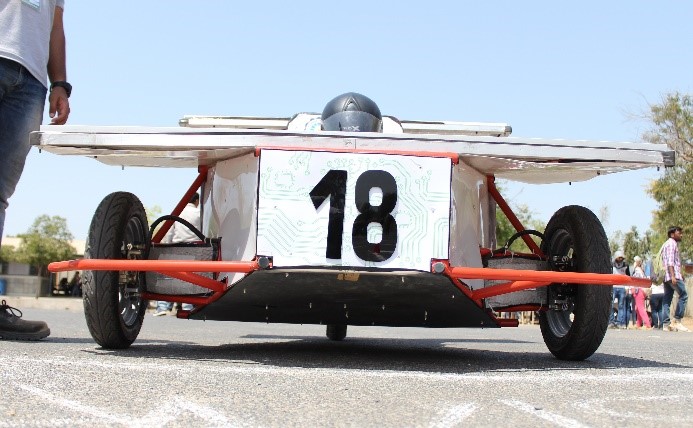

In NSVC (National Solar Vehicle Championship) in the year 2017. Our founding members built an optimum vehicle under 4 months and within the last budget that helped us bag the following awards. We stood 3rd in the entire country in the first season itself. We won the following awards in first season itself
Achievements: